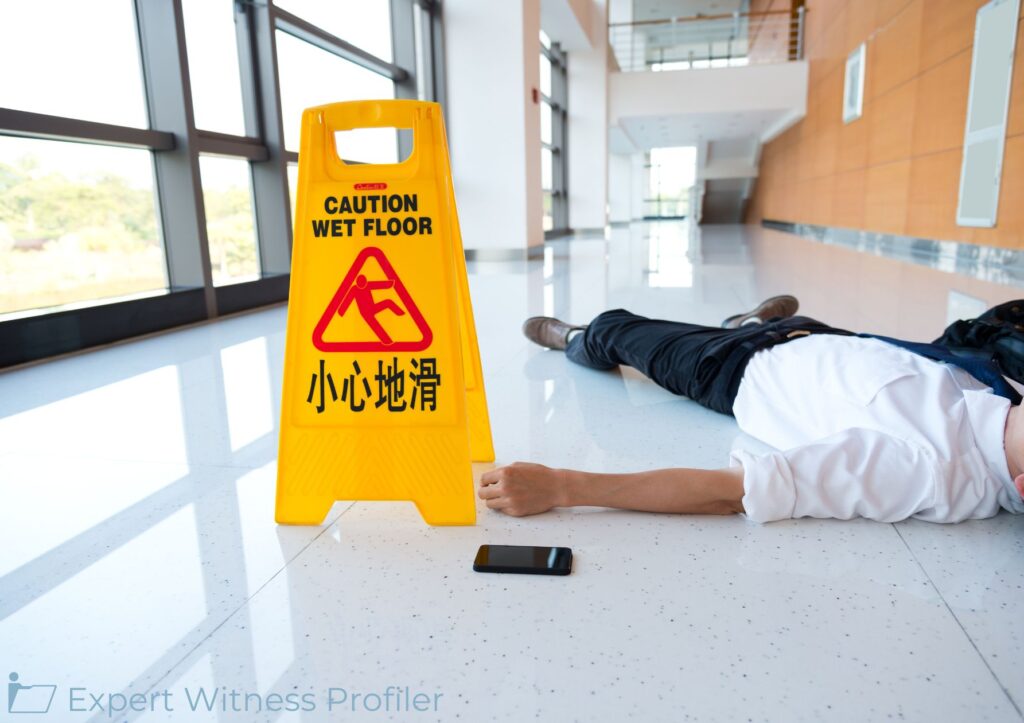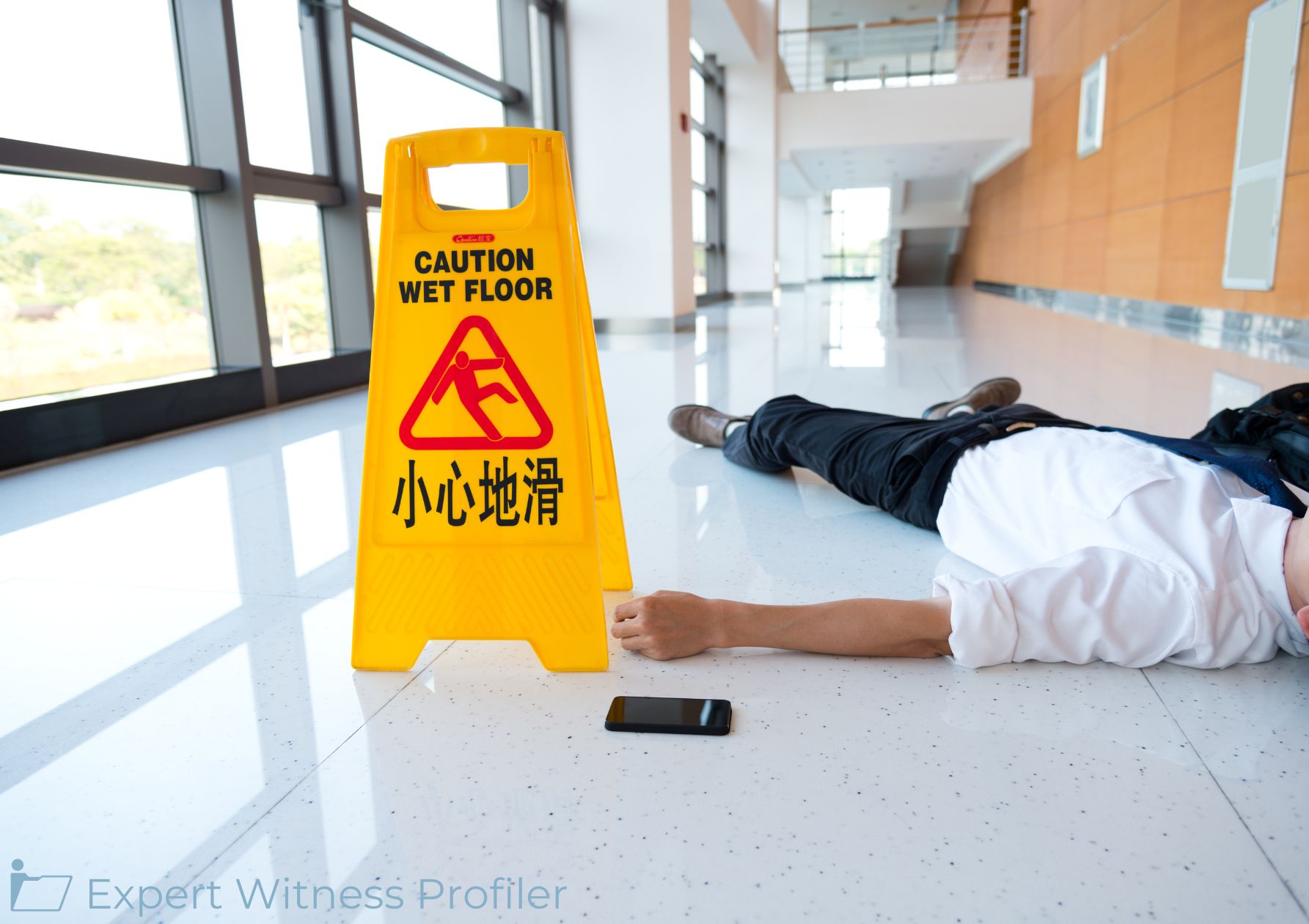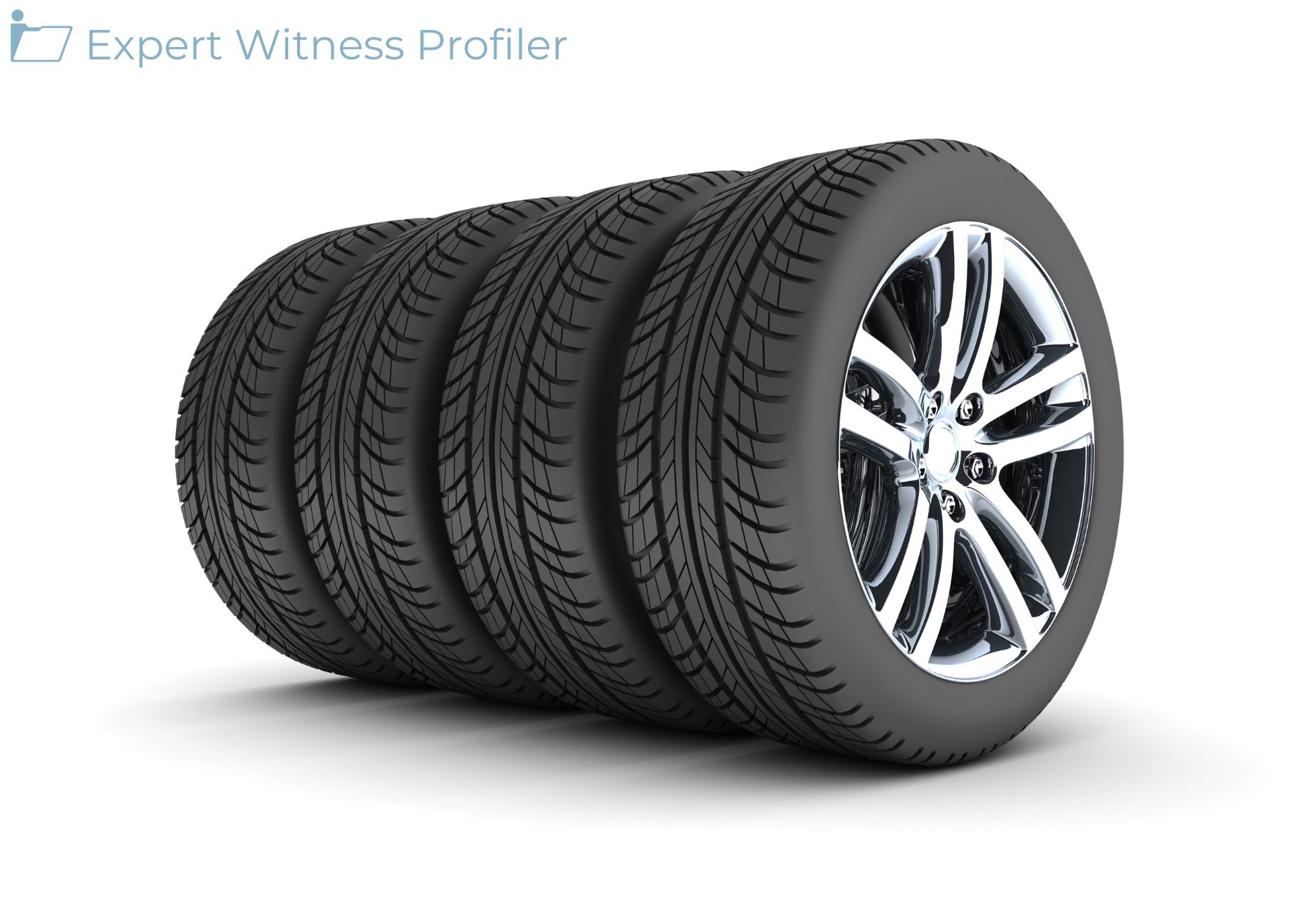Forensic Engineering Expert’s Testimony on Industry Safety Standards Admitted
Posted on July 7, 2025 by Expert Witness Profiler
Plaintiff Hui Wang brought suit against Omni Hotels Management seeking damages from a fall she suffered on September 25, 2018, in the lobby of the Omni New Haven Hotel at Yale. Wang alleged that she fell due to “water that had accumulated on the floor” and that Omni was negligent in allowing that water to accumulate and in failing to warn her about the slipping hazard.
Omni sought to preclude the admission of Douglas A. Fisher, a forensic engineering expert retained by the Plaintiff with more than 35 years of experience. Omni also sought to preclude Plaintiff’s expert, Dr. Brad J. Yoo, from offering opinions about the permanency of Wang’s injuries.

Forensic Engineering Expert Witness
Douglas A. Fisher is a forensic engineering expert with more than 35 years of diversified engineering experience in the fields of forensic evaluations, building design, and construction administration.
Orthopedic Surgery Expert Witness
Brad Joonschik Yoo, MD is a board-certified orthopaedic trauma surgeon and Associate Professor of Orthopaedic Surgery and Rehabilitation. He specializes in treating severe fractures, post-fracture complications, as well as deformities and arthritis of the lower extremity.
Yoo graduated cum laude from Cornell University. He obtained his medical degree from New York Medical College where he first found his passion for orthopaedics. Next came a residency in Baltimore, MD at the University of Maryland Medical Center, the R. Adams Cowley Shock Trauma Center, and the Johns Hopkins Hospital. He then spent a fellowship year specializing in orthopaedic trauma at the University of Washington Harborview Medical Center in Seattle.
Discussion by the Court
Omni’s motion to preclude Fisher
Fisher relied on his knowledge of the relative slipperiness of flooring materials under different conditions and industry standards for mitigating slipping risks. Fisher then applied this background to the video he saw and drew conclusions on that basis. In so doing, he relied on the coefficient of friction, “a numeric value that represents the amount of friction between two objects” as determined by a tribometer, as well as the American National Standards Institute guidelines for commercial entrance matting.
Omni sought to preclude three of Fisher’s opinions: (1) his “opinions regarding the cause of Plaintiff’s fall,” (2) his opinions regarding the proper placement of the floor mats in the Hotel lobby, and (3) his opinions regarding the characteristics of the Hotel flooring.
As to each, Omni raised essentially three challenges: (1) as it would be offered as an exhibit, Fisher’s export report contains inadmissible hearsay, (2) Fisher’s opinions are not based on sufficiently reliable methodologies, and (3) Fisher’s opinions are not likely to be helpful to the jury.
First, Omni objected to Fisher’s opinion that “‘Wang was caused to slip, fall, and become injured due to moisture on an exposed area of the marble tile flooring.'”
Omni also objected to Fisher’s further opinions that “‘[t]he Omni hotel failed to maintain the subject area in a safe condition,'” and “‘Omni failed to inspect the floor in order to prevent a hazardous and dangerous condition.'”
Analysis
The Court concluded that two of Fisher’s three opinions are admissible. In essence, Omni argued that determining what happened when Wang fell is so straightforward a task that a jury can review the video of her fall and other evidence and reach a conclusion as to the issues in dispute without the assistance of an expert. However, even if a jury could review the video and reach its own conclusions as to both (1) the cause of Wang’s fall and (2) whether the floor was maintained in a safe condition, the Court concluded that Fisher’s expertise as an engineer will assist the jury in that task and that these two opinions are based on sufficiently reliable methods and data to be admissible.
To the contrary, Fisher applied no particular expert methodologies to conclude that “Omni failed to inspect the floor in order to prevent a hazardous and dangerous condition.” Instead, the Court held that Fisher merely summarized testimony in the record from Omni employees and found that Omni’s employees perhaps could not have seen the front lobby well enough to look for liquid on the floor and may have failed to examine the lobby frequently on the day in question.
As for the issue of hearsay contained within his report, Plaintiff’s counsel indicated that he would have no issue redacting portions of Fisher’s report that contained hearsay. Because the Parties may be in agreement on a path forward regarding alleged hearsay in Fisher’s report, the Court need not resolve whether each potentially inadmissible statement in Fisher’s report meets Rule 703‘s standard.
Omni’s motion to preclude the permanency opinion of Yoo
Omni sought to preclude Yoo from offering opinions about the permanency of Wang’s injuries. Yoo last treated Wang in 2019 but only formulated his opinion as to the permanency of her disability in 2022 through his review of years-old medical records.
But Wang sought to offer Yoo to testify regarding a probable current disability. Yoo’s permanency opinion—formed separately from his treatment of Wang and on the basis of years-old information—cannot constitute the opinion of a doctor treating Wang, and, instead, would require a separate expert designation. Yoo conceded that because his opinion as to permanency was based on information at least five years old, he “did not know if Wang has any disability currently.”
As a result, the Court concluded that Yoo’s opinions as to permanency must be excluded and granted Omni’s motion to exclude this opinion from Yoo’s testimony.
Held
- The Court granted in part and denied in part Omni’s motion to preclude the testimony of Douglas A. Fisher.
- The Court granted Omni’s motion to preclude the permanency opinion of Dr. Brad J. Yoo.
Key Takeaway:
While expert testimony regarding the mechanics of a fall and industry safety standards and their supporting reasoning is more likely than not to help the jury resolve material issues in dispute, Fisher applied no particular expert methodologies to conclude that “Omni failed to inspect the floor in order to prevent a hazardous and dangerous condition.” The Court held that these conclusions are based on straightforward review of the evidence without application of particular “scientific, technical, or other specialized knowledge,” and therefore allowing Fisher to testify on this issue would impermissibly usurp the role of the jury.
Case Details:
| Case Caption: | Wang V. Omni Hotels Management Corporation |
| Docket Number: | 3:18cv2000 |
| Court Name: | United States District Court, Connecticut |
| Order Date: | June 27, 2025 |





